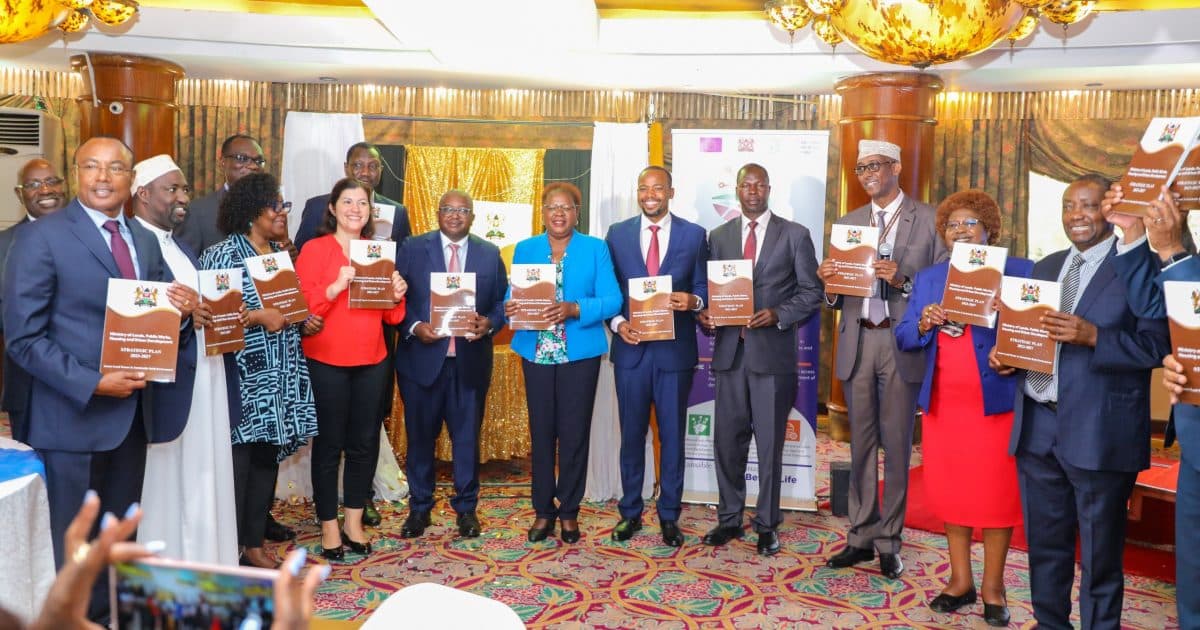We're loading the full news article for you. This includes the article content, images, author information, and related articles.
A damning High Court judgment reveals systemic negligence and possible collusion at the Ministry of Lands, which issued multiple title deeds for the same prime Nairobi properties, culminating in a decade-long legal battle for the legitimate owners.

NAIROBI, KENYA – A scathing 50-page judgment from the Environment and Land Court has exposed profound dysfunction within the Ministry of Lands, describing it as a “factory for duplicate titles” at the center of a brazen Sh1.19 billion land scam in Nairobi’s affluent Loresho suburb. The ruling, delivered in early November 2025, concluded a legal battle of more than a decade for four property owners who discovered their land had been fraudulently amalgamated and used to secure a Sh62 million bank loan by a private company.
The case revolved around three parcels of land—LR No. 21075, 21103, and 21104—each discovered to have two sets of title deeds issued years apart to different claimants. The legitimate owners, identified in court documents as Young Moon Choi, Bharat Ramnji, Allotrope Trust Company Limited, and Masai Roses Limited, had acquired their properties legally, with some holding titles dating back to the 1990s. Their protracted legal fight was against Goldstein Group Services Limited, which held competing titles for the same parcels, all dated 2013.
The elaborate fraud began to unravel in 2013 when Bharat Ramnji, one of the plaintiffs, was alerted by a real estate agent about a 14-acre property in Loresho on the market. Upon investigation, he was shocked to find that the land being sold included his own parcel, which had been illicitly merged with the other two properties to create a new one, LR No. 29945, under Goldstein Group's name. This new, fraudulent title was then used by Goldstein Group to secure a Sh62 million loan from Jamii Bora Bank.
When the rightful owners attempted to conduct an official search at the Lands Department, they were informed that the property files were missing. The court’s judgment highlighted a trail of bureaucratic negligence and suspected complicity that allowed the fraud to occur. A Nairobi County official testified that a crucial planning approval form (PPA2) bore a forged signature, and the survey process documents were incorrectly stamped for “subdivision” instead of “amalgamation”—a fundamental error that should have been a red flag for ministry officials. The Chief Land Registrar admitted in court that critical files had “disappeared.”
In a damning indictment of the ministry, the presiding judge noted, “Like a well-meaning but forgetful scribe, the Ministry of Lands appears to have rewritten its own story several times, bestowing ownership of land upon more than one deserving soul.” The court ultimately declared the amalgamation of the properties fraudulent and illegal, ordering the cancellation of all titles held by Goldstein Group and the reinstatement of the original owners' deeds.
This case is a stark illustration of the deep-rooted and systemic issue of land fraud in Kenya, a problem that costs the economy billions of shillings annually and erodes investor confidence. According to a 2021 report by Transparency International-Kenya, illegal land acquisitions result in losses of up to Sh8 billion each year. Fraudulent activities are often sophisticated and perpetrated with the help of insiders within land registries. In April 2025, the Ministry of Lands acknowledged the severity of the problem by establishing Multi-Agency Teams (MAT), including officers from the Directorate of Criminal Investigations (DCI) and the National Intelligence Service (NIS), to combat these cartels.
The Loresho scandal is not an isolated incident. In a separate case in June 2025, the Ethics and Anti-Corruption Commission (EACC) recovered a 4.9-acre parcel of public land in Loresho valued at over Sh400 million. The land, reserved for a water reservoir, had been illegally subdivided and allocated to private individuals and companies. Another ongoing dispute in Loresho involves a Sh1.3 billion property claimed by both businessman Ashok Kumar Rupshi and former Nairobi Provincial Commissioner Davis Nathan Chelogoi, who faces charges of conspiracy to defraud.
The court's ruling provides a measure of justice for the affected landowners but serves as a cautionary tale for all property owners in Kenya. It underscores the critical vulnerability of the country's land titling system and the immense difficulty citizens face in defending their property rights against well-connected fraudulent schemes. The case highlights the urgent need for robust and transparent reforms at the Ministry of Lands to secure land records and restore public trust. While the government has initiated a digitization project, the scale of the challenge remains immense. For now, the burden of vigilance and costly legal battles often falls on ordinary Kenyans trying to protect their most valuable assets.
Keep the conversation in one place—threads here stay linked to the story and in the forums.
Sign in to start a discussion
Start a conversation about this story and keep it linked here.
Other hot threads
E-sports and Gaming Community in Kenya
Active 9 months ago
The Role of Technology in Modern Agriculture (AgriTech)
Active 9 months ago
Popular Recreational Activities Across Counties
Active 9 months ago
Investing in Youth Sports Development Programs
Active 9 months ago